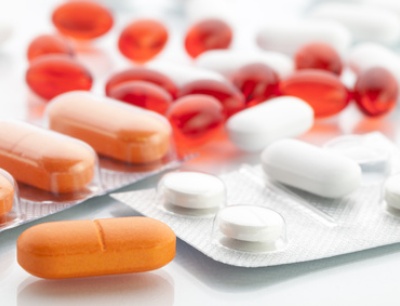
The credit outlook for the pharmaceutical sector in 2020 remains stable. Successful innovation is underpinning strong growth in an industry which benefits from powerful secular trends - ageing populations and more affluent lifestyles. Scope Ratings says that some potential threats to the industry’s growth are also receding, most notably the “patent cliff": expiring blockbuster-drug patents are less of a threat to revenues than they were in the past.
“In essence, the risk environment for the sector is becoming more benign over time, assuming pharmaceutical firms maintain successful R&D strategies,” says Olaf Tölke, head of corporates at Scope Ratings. The pharmaceutical sector will experience compound annual growth of 6.9% for global prescription drug sales for the 5-year period between 2019 to 2024, according to projections from research firm Evaluate Pharma. Operating risk in the sector is a function of how successful companies are in replacing revenues lost to top-selling drugs coming off-patent with sales of new products, whether acquired through mergers or the result of in-house R&D. “The patent cliff has become less steep in the past 10 years or so due to the industry’s concerted ‘innovative push’ and the diminishing economic cost of expired patents,” says Tölke. The industry has developed some truly innovative products in promising treatment areas such as:
In addition, the pharmaceutical segment of rare diseases (‘orphan drugs’ – those with less than 200,000 patients in the US and less than around 250,000 in Europe) recorded significant 11% sales growth in 2018 and is expected to deliver compound annual growth of 12% between 2019 and 2024.
As for drugs coming off patent, modern biological drugs, such as antibodies, cannot be replicated by generic manufacturers just by copying the mix of individual chemical ingredients as was typical with previous drugs. Biological drugs consist often of proteins which are commonly developed in living chicken eggs. Replicating such a complex “production” process is difficult, leading to generic versions with less than 100% equivalence with the originator product. Many patients and doctors are reluctant to accept risks associated with generic biologicals, even if there is a sizable discount in price, particularly in the treatment of life-threatening diseases. “The upshot is that the loss of patent protection is less of a threat to sales than it was,” says Tölke.
Tölke notes that other business risks are diminishing – such as healthcare reforms that might lead to reductions in US drug prices – though, in Europe, uncertainty persists over what impact the final version of Brexit might have on supply chains in the sector. With business risks benign for the credit outlook of pharmaceutical companies, management’s financial policies will largely determine companies’ individual financial risk profiles. “US pharmaceutical companies will continue to have a more aggressive approach to returning cash to shareholders than counterparts in Europe,” says Tölke.